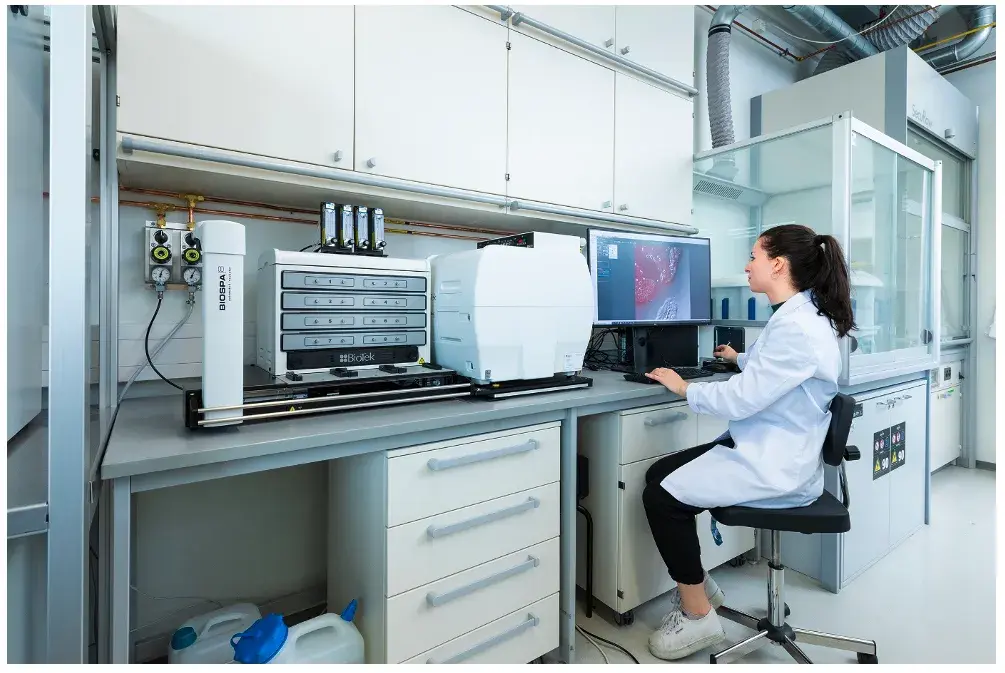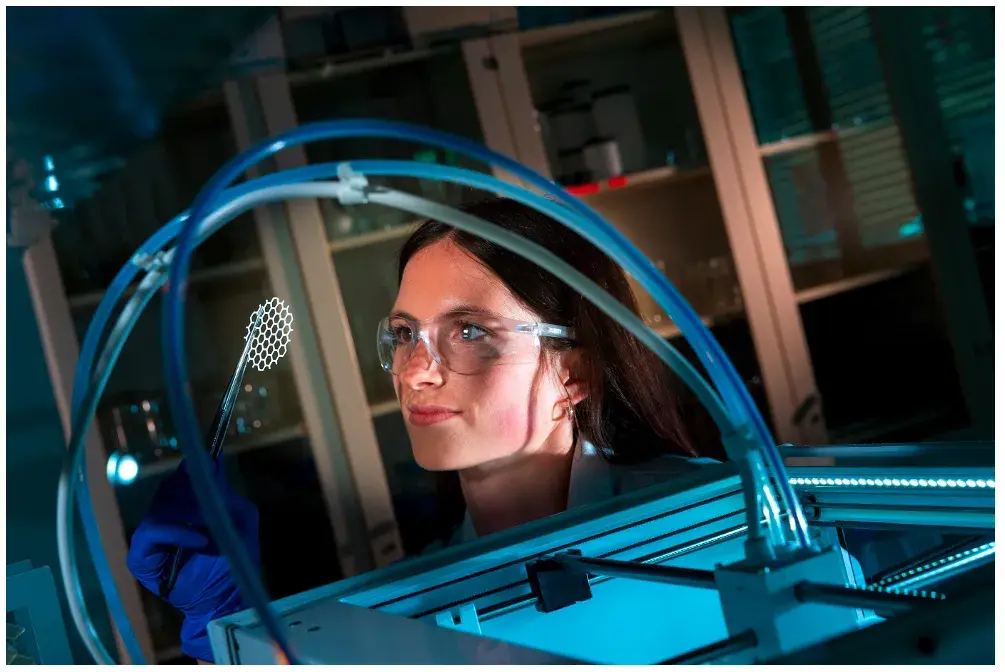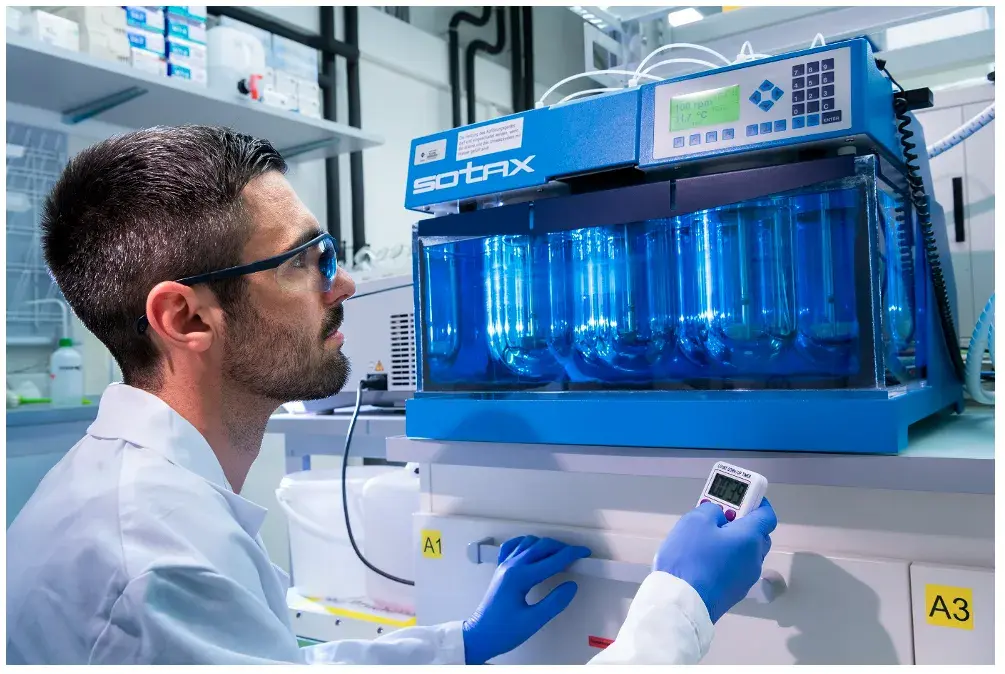Section Pharmaceutical Technology and Pharmacology

«Innovative pharmaceutical research and the training of young scientists are our passion.»
Dr. Steffi Lehmann
Head of Section Pharmaceutical Technology and Pharmacology
Within the research focus "Pharma Innovation" the "Pharmaceutical Technology and Pharmacology" group develops novel drug delivery systems to improve the application, pharmacokinetics and efficacy of active pharmaceutical ingredients. In particular, the Pharma team is interested in establishing therapeutic approaches enabling the targeted delivery of drugs to their site of action (diseased organ or target cells). There a therapeutic effect is to be triggered at the right time (targeted drug delivery). In addition, the group works on the pharmacological characterization of new drugs with respect to their pharmacokinetic (PK) and pharmacodynamic (PD) properties as well as their toxicity in 2D and 3D cell culture models and in zebrafish embryos. For this purpose, the group exploits different microscopic imaging techniques (live cell epifluorescence imaging, multiphoton and confocal microscopy). In the field of pharmaceutical technology, the team develops solid, semi-solid and liquid drug formulations and tests their quality (quality tests according to Ph.Eur).
About us
For the development of new, tissue-specific drug delivery systems, we use pharmaceutical nanoencapsulation systems such as extracellular vesicles (EVs) or mesoporous silica particles (MSPs), which package sensitive drugs, thereby protecting them, and can be directed to their target site by surface modification with address molecules. Together with the Organic Chemistry and Medicinal Chemistry Group, we have recently developed a platform to efficiently modify the surface of nanocarrier systems with ligands. In collaboration with the Center Functional Materials and Nanotechnology our group uses methods of pharmaceutical nanotechnology such as electrospinning to incorporate drugs into biodegradable polymer fibers, which can be employed to coat wound dressings or implant surfaces, enabling a sustained, local drug release.
Competencies and Research
Development of novel drug delivery systems
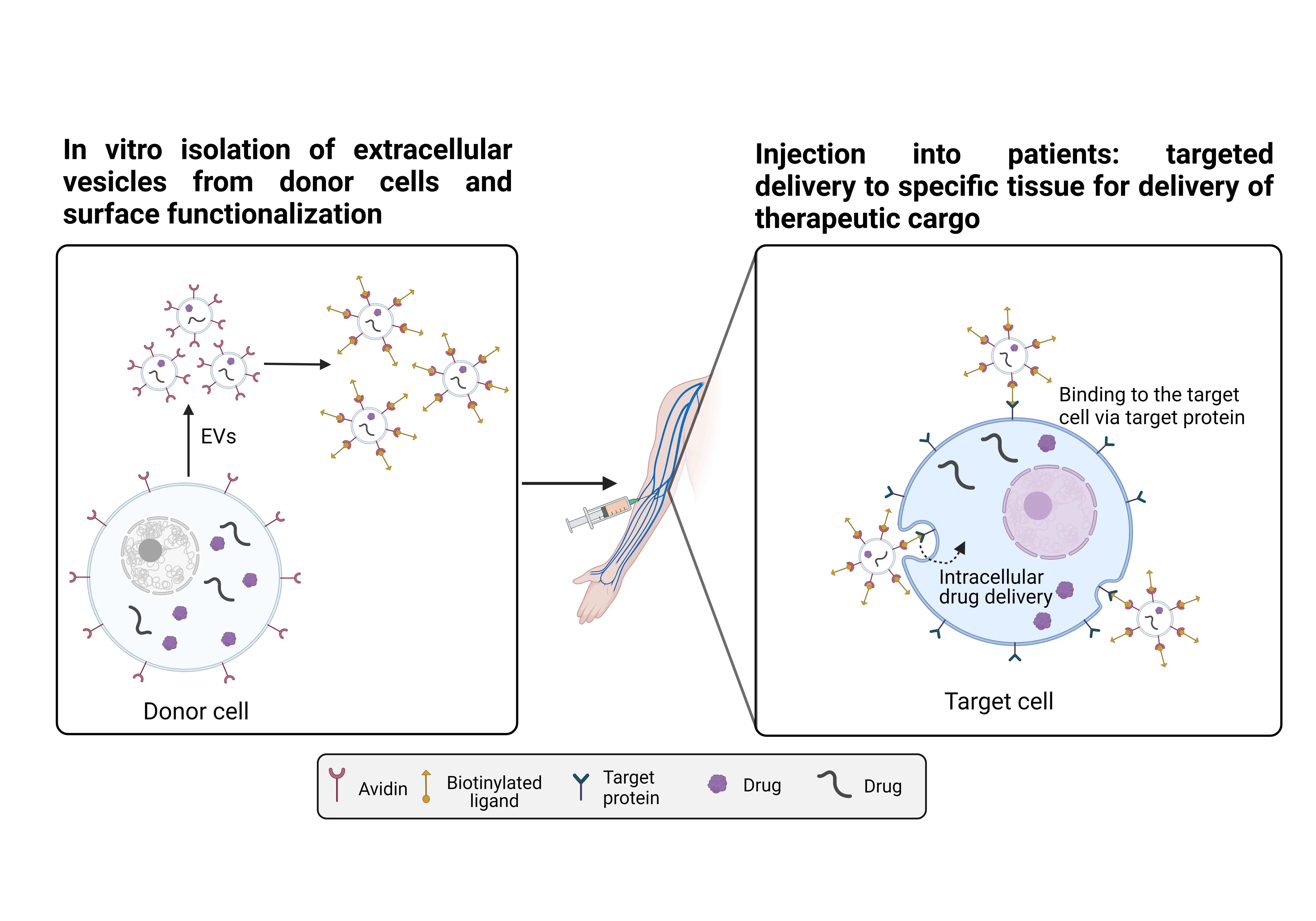
Nanoparticles such as lipid-based nanoparticles, for example liposomes or extracellular vesicles produced by cells, can be used as transport vehicles for drugs. They allow delicate drugs to be packaged a way that they are protected from premature degradation and improve their distribution within the organism. By chemically modifying their surface, such drug delivery systems can be directed to specific tissues or cells. Our team is investigating various strategies for chemically modifying the surface of drug-loaded nanoparticles to direct them to specific tissue types, where they can produce a therapeutic effect through local release of their cargo.
Development of drug formulations
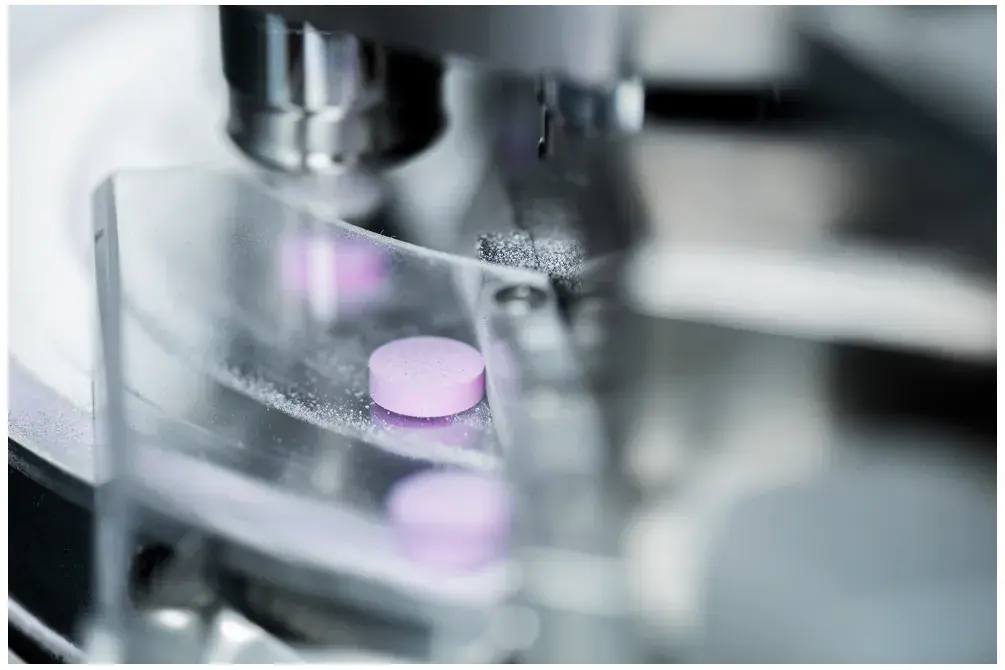
Our laboratory develops pharmaceutical drug formulations. Thereby the main focus relies on the production of tablets as by far the most common galenic preparation. Tablets are produced by pressing equal volumes of crystalline, powdered or granulated drug-containing mixtures, including excipients, in appropriate tabletting machines. By selecting and combining suitable excipients, tablet properties such as disintegration time and drug release can be modified. Our group has the necessary expertise and is equipped for the
- Optimization of tablet formulations, screening of new tableting excipients
- Development of coated tablets
- Quality testing of tablets according to the European Pharmacopoeia
DMPK/PD studies in vitro and in vivo (2D, 3D cell culture models and zebrafish embryos)

We test novel drug candidates with regard to their pharmacodynamic (PD) and pharmacokinetic (PK) properties.
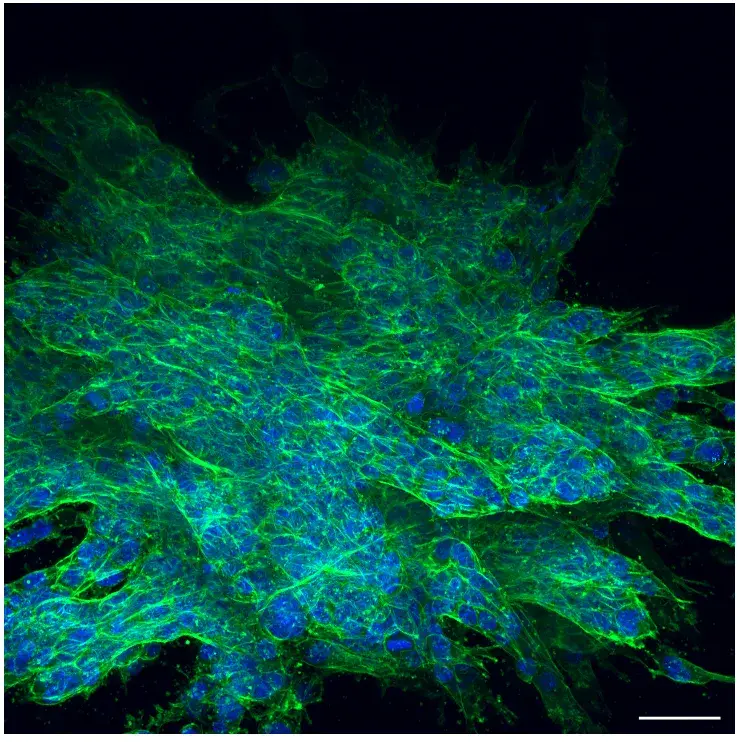
In addition to biochemical assays, we perform assays in 2D and 3D tissue culture models and zebrafish embryos. To elucidate the molecular and cellular mechanisms underlying the mode of action of new drugs, the lab has specialized in the use and is routinely applying microscopic imaging techniques (live epifluorescence imaging, confocal microscopy and multiphoton microscopy).
Timelapse microscopy for analyzing the cellular uptake of nanoparticles or cell migration
In vitro and in vivo toxicity assays
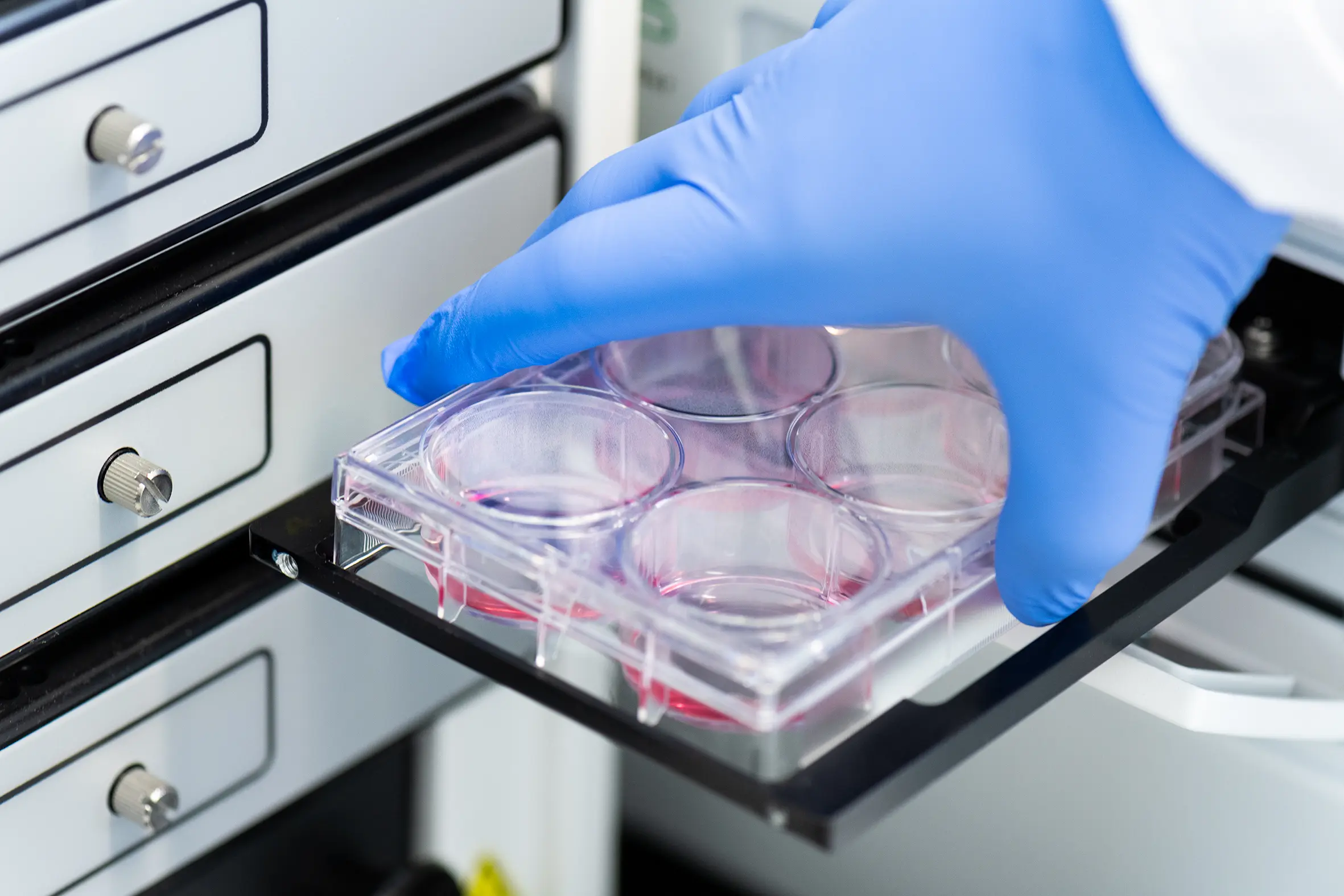
We perform toxicological profiling for new drug candidates. For this purpose, we carry out classical cytotoxicity experiments in cells as well as toxicological studies in zebrafish embryos.
Biopolymers

Polymers are used in many ways in pharmaceutical technology, for example for the development of new drug delivery systems, the coating of tablets or nanostructures. Polymers of natural origin as well as synthetic molecules are used. We are testing plant-derived biopolymers for various applications, for example for the production of electrospun nanostructures, which can be used in tissue engineering or for local drug delivery. As substitutes for plastic, biopolymers are also interesting for applications in pharmaceutical packaging or coatings.
Projects
Unfortunately, no list of projects can be displayed here at the moment. Until the list is available again, the project search on the ZHAW homepage can be used.
News
ZHAW Press Release (04/2023): Chemistry student awardes with the Max Lüthi prize for bachelor thesis
DIZH Fellowship 2022 / Steffi Lehmann: Set-up of a combined in silico/in cellulo screening platform to identify novel anti-fibrotic drugs
Team
-

ZHAW School of Life Sciences and Facility Management
Einsiedlerstrasse 31
8820 Wädenswil -

ZHAW School of Life Sciences and Facility Management
Einsiedlerstrasse 31
8820 Wädenswil -

ZHAW School of Life Sciences and Facility Management
Einsiedlerstrasse 31
8820 Wädenswil -

ZHAW School of Life Sciences and Facility Management
Einsiedlerstrasse 31
8820 Wädenswil -

ZHAW School of Life Sciences and Facility Management
Einsiedlerstrasse 31
8820 Wädenswil -

ZHAW School of Life Sciences and Facility Management
